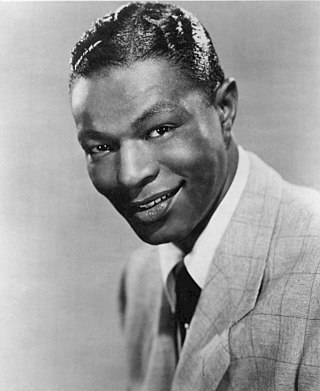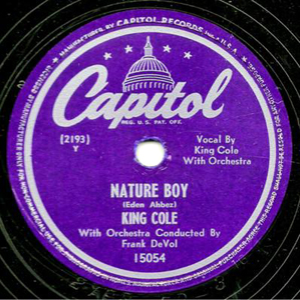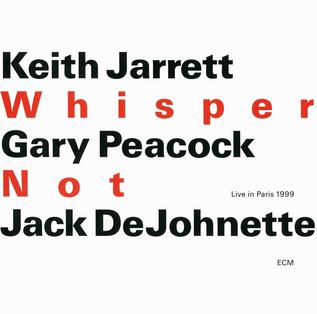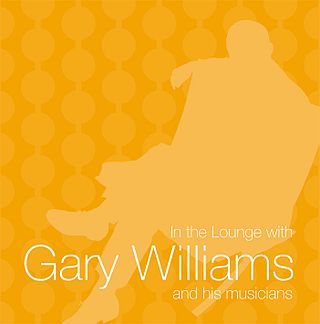
Nathaniel Adams Coles, known professionally by his stage name Nat King Cole, was an American singer, jazz pianist, and actor. Cole's career as a jazz and pop vocalist started in the late 1930s and spanned almost three decades where he found success and recorded over 100 songs that became hits on the pop charts.

Robert Henry Timmons was an American jazz pianist and composer. He was a sideman in Art Blakey's Jazz Messengers for two periods, between which he was part of Cannonball Adderley's band. Several of Timmons' compositions written when part of these bands – including "Moanin'", "Dat Dere", and "This Here" – enjoyed commercial success and brought him more attention. In the early and mid-1960s he led a series of piano trios that toured and recorded extensively.

Montgomery Bernard "Monty" Alexander OJ CD is a Jamaican American jazz pianist. His playing has a Caribbean influence and bright swinging feeling, with a strong vocabulary of bebop jazz and blues rooted melodies. He was influenced by Louis Armstrong, Duke Ellington, Erroll Garner, Nat King Cole, Oscar Peterson, Ahmad Jamal, Les McCann, and Frank Sinatra. Alexander also sings and plays the melodica. He is known for his surprising musical twists, bright rhythmic sense, and intense dramatic musical climaxes. His recording career has covered many of the well-known American songbook standards, jazz standards, pop hits, and Jamaican songs from his original homeland. Alexander has resided in New York City for many years and performs frequently throughout the world at jazz festivals and clubs.
"Autumn Leaves" is a popular song based on a French song "Les Feuilles mortes" composed by Joseph Kosma in 1945. The original lyrics were written by Jacques Prévert in French, and the English lyrics were by Johnny Mercer. An instrumental version by pianist Roger Williams was a number one best-seller in the US Billboard charts of 1955.
"Tenderly" is a popular song published in 1946 with music by Walter Gross and lyrics by Jack Lawrence. Written in the key of E♭ as a waltz in 3
4 time, it has since been performed in 4
4 and has become a popular jazz standard. Notable versions have been recorded by singers, such as Sarah Vaughan, Billie Holiday, and Nat King Cole, and pianists, such as Art Tatum, Bill Evans and Peruchín.
"The Christmas Song" is a classic Christmas song written in 1945 by Robert Wells and Mel Tormé.
"Do Nothing till You Hear from Me" is a song with music by Duke Ellington and lyrics by Bob Russell. It originated as a 1940 instrumental that was designed to highlight the playing of Ellington's lead trumpeter, Cootie Williams. Russell's words were added later. In 1944, Ellington's own recording of the song was a number one hit R&B chart for eight non-consecutive weeks and number six on the pop chart.

"Nature Boy" is a song first recorded by American jazz singer Nat King Cole. It was released on March 29, 1948, as a single by Capitol Records, and later appeared on the album, The Nat King Cole Story. It was written by eden ahbez as a tribute to Bill Pester, who practiced the Naturmensch and Lebensreform philosophies adopted by ahbez. The lyrics of the song relate to a 1940s Los Angeles–based group called "Nature Boys", a subculture of proto-hippies of which ahbez was a member.

Bradford Alexander Mehldau is an American jazz pianist, composer, and arranger.

Russell Malone is an American jazz guitarist. He began working with Jimmy Smith in 1988 and went on to work with Harry Connick, Jr. and Diana Krall throughout the 1990s.
"Let's Face the Music and Dance" is a song published in 1936 by Irving Berlin for the film Follow the Fleet, where it was introduced by Fred Astaire and featured in a celebrated dance duet with Astaire and Ginger Rogers. The jazz song has also been covered by various artists years following its release, including Nat King Cole, Ella Fitzgerald, Frank Sinatra, Mel Torme, Todd Gordon and others.

A jazz trio is a group of three jazz musicians, often a piano trio comprising a pianist, a double bass player and a drummer. Jazz trios are commonly named after their leader, such as the Bill Evans Trio.

My Fair Lady, recorded by "Shelly Manne & His Friends" and released in 1956 by Contemporary Records, is the first album ever made consisting entirely of jazz versions of tunes from a single Broadway musical. It was an instant hit and became one of the best-selling jazz albums of its day.
"Straighten Up and Fly Right" is a 1943 song written by Nat King Cole and Irving Mills and one of the first vocal hits for the King Cole Trio. It was the trio's most popular single, reaching number one on the Harlem Hit Parade for ten nonconsecutive weeks. The single also peaked at number nine on the pop charts. "Straighten Up and Fly Right" also reached number one for six nonconsecutive weeks on the Most Played Jukebox Hillbilly Records.

Whisper Not is a live double-album by Keith Jarrett, recorded at the Palais des congrès de Paris on July 5, 1999 and released on ECM October the following year. The trio—Jarrett's "Standards Trio"—features rhythm section Gary Peacock and Jack DeJohnette.

Gary Williams is a British jazz singer, writer, and broadcaster whose performances include concerts, cabaret shows, and theatre. Williams has recorded ten solo albums and written Cabaret Secrets, a book on stagecraft.

In the Lounge with Gary Williams is jazz vocalist Gary Williams's second album, recorded at Abbey Road Studios and released in 2006. It is a collection of arrangements played by jazz musicians.

Gary Williams Meets Frank Sinatra is jazz vocalist Gary Williams's fourth album, recorded with Chris Dean and his Orchestra, and released in 2010 in Europe and 2011 in Japan. It is a Frank Sinatra tribute album.

The Best of Abbey Road is jazz vocalist Gary Williams's fifth album, released in 2010. It is a compilation album of songs from three albums recorded at Abbey Road Studios: Alone Together, In the Lounge with Gary Williams and Swingin' on Broadway.













